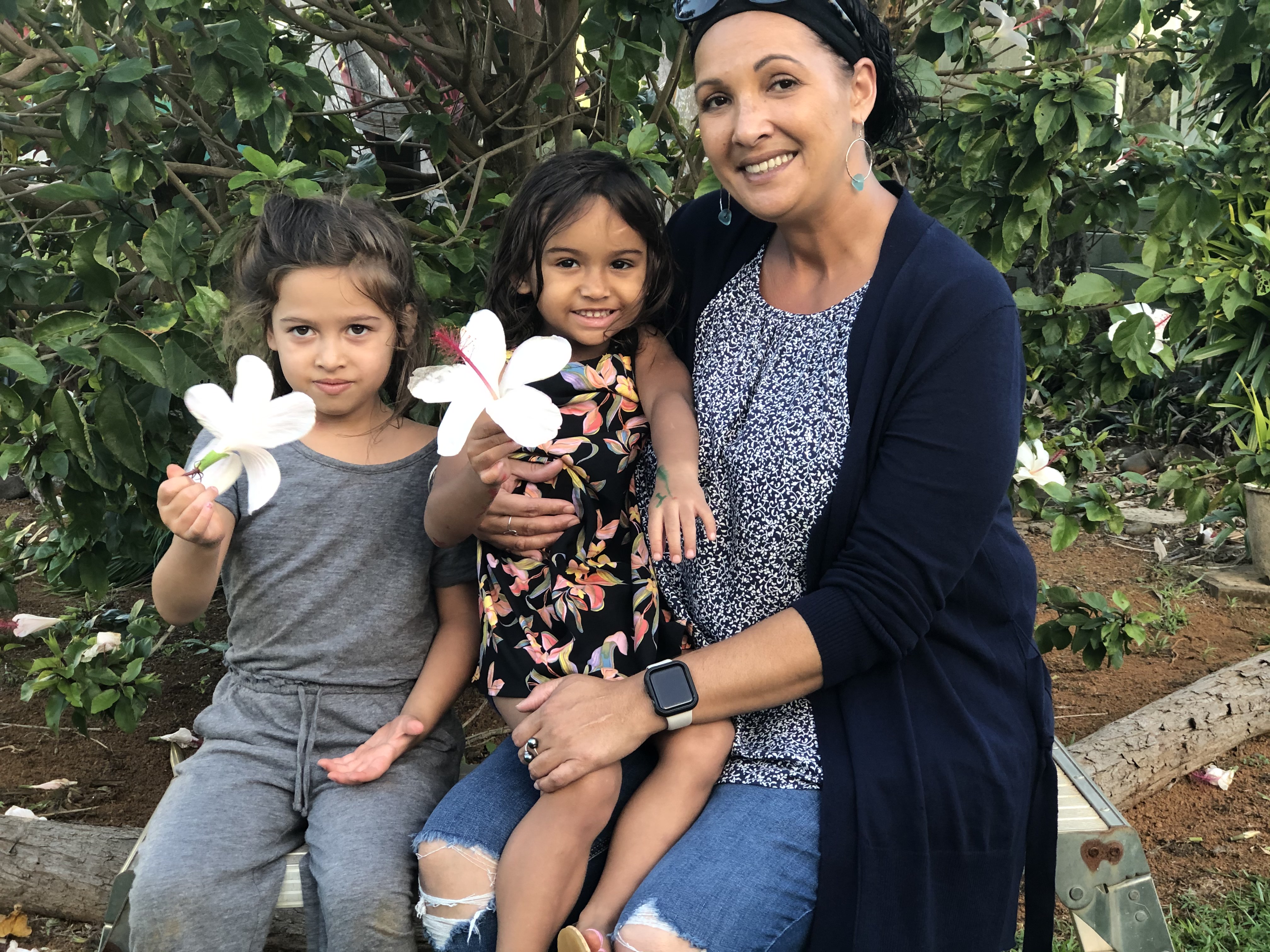Support Parents, Support Kids
A new cross-sector plan makes mental and behavioral health resources more accessible to families
 Heidi Allencastre (shown with her two daughters) worked with Maui Family Support Services to strengthen her parenting and relationship to her daughters.
Heidi Allencastre (shown with her two daughters) worked with Maui Family Support Services to strengthen her parenting and relationship to her daughters.
Photo courtesy of Heidi Allencastre.
Imagine this: it’s Monday morning, and you are dropping your daughter off at daycare—she’s crying and gripping the fencing outside fearful to leave you and fearful you won’t return. You start to worry you’re going to be late for work. You brace yourself every morning for a repeat and you feel overwhelmed. Some families are in a state of ongoing stress and high alert, which wreaks havoc on a body like a car engine that’s revving at high levels for an extended period of time. What if you could call or text a free hotline that immediately connects you to an early childhood behavioral health expert to learn how to help your daughter and yourself?
This hotline is just one objective proposed by a first-of-its-kind plan created by public-private partners to better support the mental health of young children zero to five by first supporting the parents. Released in May 2021, which is Mental Health Awareness Month, the Integrated Infant and Early Childhood Behavioral Health (IECBH) Plan outlines shared goals to close care gaps and maximize all resources to create an equitable, accessible system of care over the next five years.
“Having that kind of support is extremely necessary for families to succeed and move past difficult circumstances.”
– Heidi Allencastr
Research indicates that the first few years of a child’s life are critical to healthy mental and emotional development, and that starts in the home. Despite many programs and initiatives in play on behalf of young children in Hawai‘i, early childhood proponents realized the system of care was fractured, and busy parents spent time bouncing around trying to get help for their child once concerns arose, such as speech and language delays, trouble sleeping, or withdrawing during playtime with peers, in-between their own work schedules. Sometimes they wait months to get referred to a specialist. A key component of the plan is making preventative measures, like routine depression screenings of parents, easily accessible and the standard of care. That in turn will set young children up for success by addressing issues ahead of time instead of down the line, when intervention becomes more urgent.
Families can also experience health inequities caused by race, socioeconomic status, and geographic location.
The COVID-19 pandemic has only shed light on the great need for families to have fast access to supports and services. While the plan was in the works before 2020, seeing the pandemic’s effect on parents—especially working parents—catalyzed its development.
Heidi Allencastre is a Maui mom of two who knows firsthand how powerful behavioral health resources can be for parents. In March 2017, Allencastre enrolled in two home visiting programs with Maui Family Support Services (MFSS): Ka Pu‘uwai O Na Keiki and Early Head Start. Allencastre had access to daycare, support groups and home visits with a trained childcare expert and nurse to provide hands-on guidance on healthy interactions with her daughters, which helped their mom-daughter relationship flourish. The nonprot offers a range of comprehensive services focused on strengthening Hawai‘i families to prevent child abuse and neglect.
At the time, Allencastre says she didn’t have outside support and MFSS was always one call away. “Having that kind of support is extremely necessary for families to succeed and move past difficult circumstances,” she says.
Read more Stories of Impact